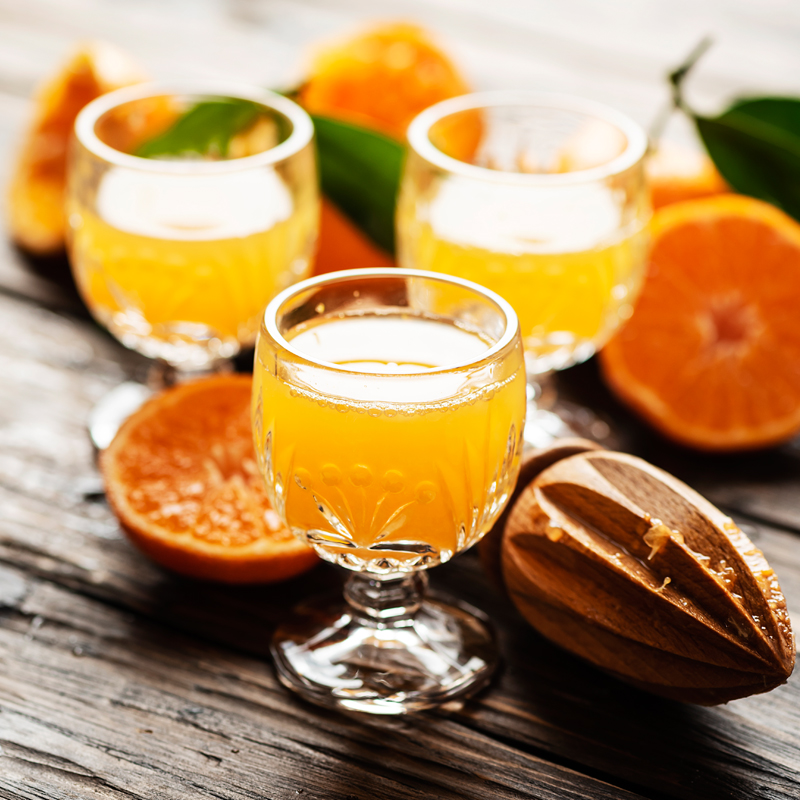
100 gr |
-- |
|
|---|---|---|
| Carbohydrate (gr) | 15.04 |
4928.47 |
| Protein (gr) | 3.59 |
1176.23 |
| Fat (gr) | 12.46 |
4083.43 |
| Fiber (gr) | 1.36 |
445.97 |
| Cholesterol (mg) | 14.64 |
4795.8 |
| Sodium (mg) | 325.27 |
106557.75 |
| Potassium (mg) | 392.16 |
128471.4 |
| Calcium (mg) | 78.15 |
25603.27 |
| Vitamin A (mg) | 46.04 |
15084.01 |
| Vitamin C (mg) | 6.16 |
2019.31 |
| Iron | 0.62 |
203.1 |
Orange liqueur is one of the most well-known fruit-based liqueurs, celebrated worldwide for its sweet, citrusy, and slightly bitter flavor. Made from the peels of bitter or sweet oranges, this alcoholic beverage is widely used in cocktails, desserts, and gourmet dishes. Popular brands include Cointreau, Grand Marnier, and Triple Sec.
The calories in orange liqueur are 321 calories per 100 ml.
Orange liqueur is typically made by combining neutral alcohol with orange peel essence, sugar, and water. Some varieties use the peel of bitter oranges—such as Seville oranges—to deliver a deeper aroma and more complex taste. The alcohol content usually ranges between 20% to 40% by volume, depending on the brand and type.
A standard 30 ml serving (about one shot) of orange liqueur contains approximately 90 to 110 kilocalories, most of which come from sugar. While it doesn’t offer significant amounts of fat, fiber, or protein, it may contain trace amounts of vitamin C, depending on the oranges used. However, most of the natural nutrients are lost during the distillation and infusion process.
| Approximate Amount per 30 ml | Orange Liqueur |
|---|---|
| Calories | 100 kcal |
| Carbohydrates | 11 g |
| Sugar | 10–11 g |
| Fat | 0 g |
| Protein | 0 g |
| Alcohol Content | 20–40% ABV |
Thanks to its rich flavor and fragrant aroma, orange liqueur is a popular ingredient in a variety of classic cocktails. Some of the most iconic drinks made with orange liqueur include:
Margarita
Cosmopolitan
Blue Lagoon
Beyond beverages, it’s also used in desserts like tiramisu, orange mousse, fruit cakes, and even in some savory sauces—especially in gourmet meat dishes—adding a citrusy twist and a touch of sweetness.
While orange liqueur is undeniably delicious and versatile, it should be consumed in moderation. Its high sugar and alcohol content can contribute to excess calorie intake and have negative health effects if overused. For those on low-calorie diets or avoiding alcohol, natural orange extract or orange zest can serve as excellent non-alcoholic alternatives.
Orange liqueur is a delightful blend of sweet and bitter orange flavors with a warm, citrus aroma that makes it a prized ingredient in both the kitchen and the bar. Whether enhancing a cocktail or adding a gourmet touch to dessert, it brings bold flavor and elegance—just remember to enjoy it responsibly.